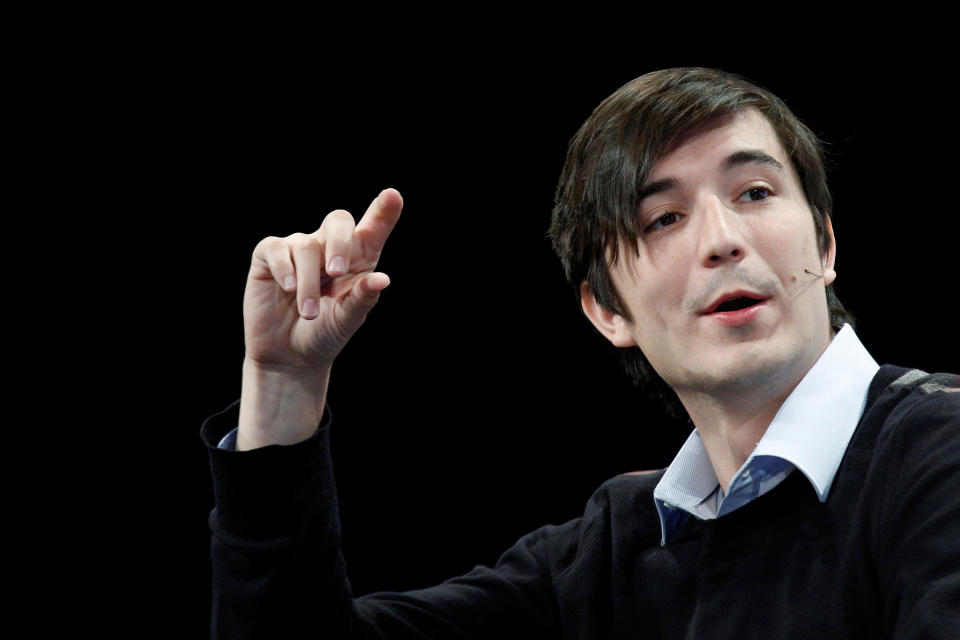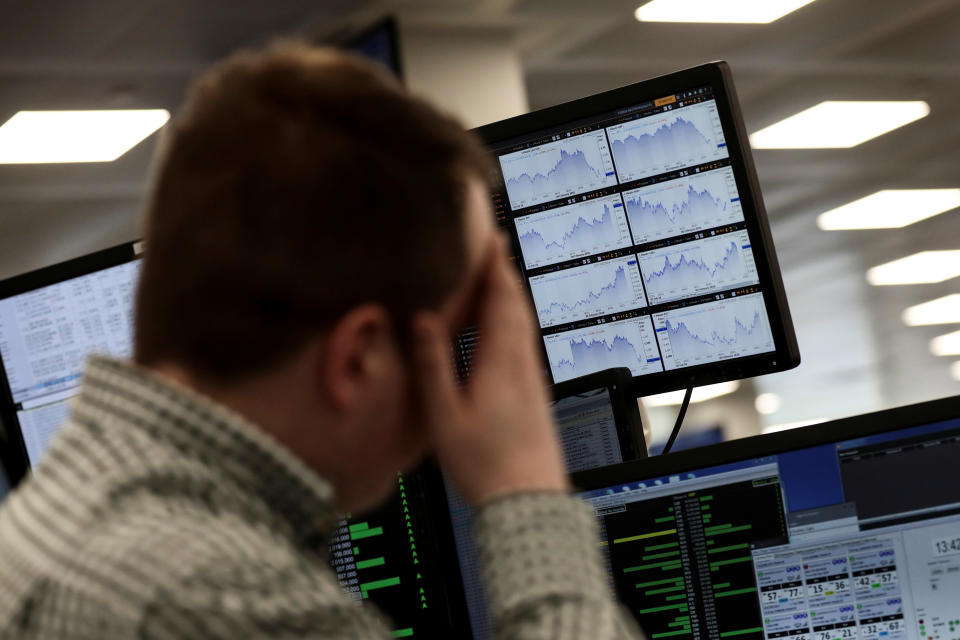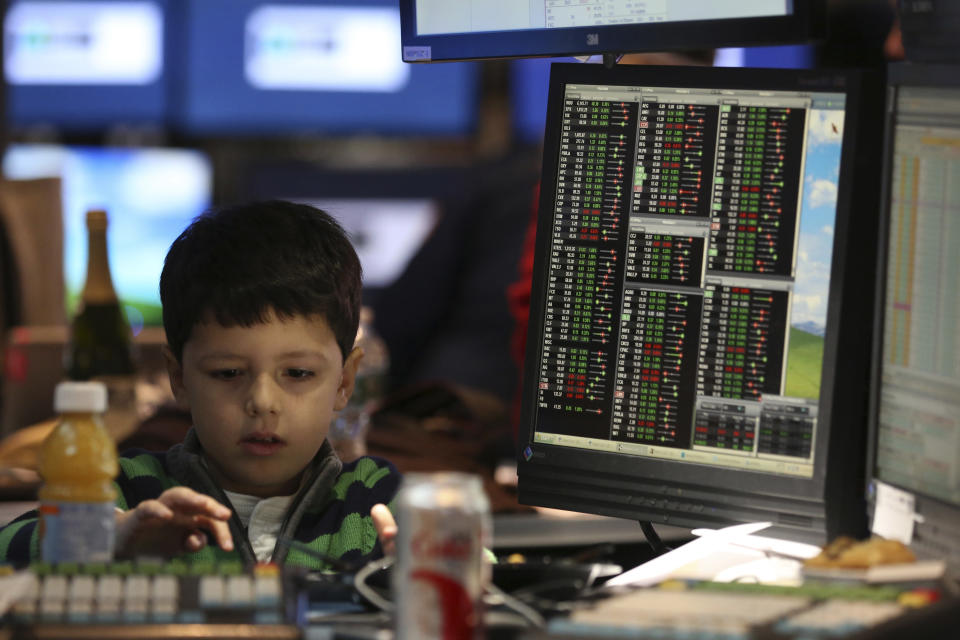Charles Schwab and brokers cut fees as some warn 'there is no real free lunch'
The commission-free broker war is on — as is the battle for the hearts and wallets of retail investors.
On Tuesday, Charles Schwab (SCHW) announced that it was eliminating fees for online trades — including U.S. stocks, ETFs, and options, years after Robinhood began offering the same. That begins on Monday, October 7. In a statement, Schwab CFO Peter Crawford called the move “inevitable” and the right thing to do for clients.
TD Ameritrade (AMTD) also jumped on the bandwagon, announcing that its U.S. brokers will no longer require fees for online trades, U.S. and Canadian ETFs, option trades as of October 3. However, those trading options may have to pay a $0.65 fee per contract, they added, but “with no exercise and assignment fees.”
Amid intensifying pressure to curb investment fees, the writing was on the wall in an industry that’s tried to become more accessible to everyday consumers. Competition from micro-investing platforms like Stash, Robinhood and Acorns have upped the ante, but Schwab’s move signals a formal acknowledgement by the bigger players that times are changing.
“When it comes to the banking industry … this is the ongoing reduction in the frictional cost of finance,” Wells Fargo Securities’ Mike Mayo told Yahoo Finance’s “On the Move” on Wednesday.
For consumers, Mayo said that fee elimination was “a good thing. And for the large banks, it’s not that big a deal… it’s kind of a last-century concern.”
Schwab is the largest publicly traded online broker, with around 12.1 million customers using its services. It had prided itself on offering low-cost services — and in the past has taken out ads mocking its competitors’ ability to match its offerings.

But it couldn’t beat Robinhood. Founded in 2012, the financial startup was valued at $7.6 billion in July after a funding round, had more than 6 million users at the end of last year. It’s been the most popular app amongst competitors like M1 Finance, WeBull, and others.
“Investing with Robinhood is commission free, now and forever,” the company’s website states. “We don’t charge you fees to open your account, to maintain your account, or to transfer funds to your account.”
‘The commoditization of trading’
The rise of low to no-cost trading platforms like Robinhood has compressed the economics of the industry, experts say.
Will McGough, Stadion Money Management’s CIO of retirement, told Yahoo Finance’s “The Ticker” that “the entire industry trend is towards fee compression, lower costs, free investments.”
Marko Dedovic, who runs Threadvest, a New York-based startup that helps investors navigate ETFs, noted that the move wasn’t exactly earth-shattering for customers. It was more about how it happened.
“I'm personally not affected very much, given that Schwab already had ETFs that were free to trade, however now I might just be able to do a bit more trading in there given [that] it's free,” Dedovic said.
He added that since Robinhood and YouInvest — an offering from JPMorgan Chase (JPM) — were already free, the “bulk of active trading was done there.” The former is “the leader to commoditization of trading,” Dedovic added.

‘No real free lunch’
However, at least a few market watchers contend that Schwab’s — and even Robinhood’s — “free” services don’t exactly translate into a net win for the customer.
While the platform doesn’t charge fees, unless one uses its special services like Robinhood Gold, the cost is actually reflected in the price of the asset being purchased.
For example, if you buy a stock on no-fee Schwab, you place an order. The brokerage sends that buy order — say, for $5 — to a third party. That entity sells you the stock for $5, but the actual cost of it was $4.99. The $0.01 made on that trade is then shared between the third party and the broker.
On top of that, brokers have other ways of making money.
For example, an outside professional trading firm may buy up all the retail-investor orders that come from a broker, be it Robinhood or Fidelity, and executes those trades.
These companies then make money from the gap between the bid and the offer. And depending on whatever they make, the broker then receives payment for the order flow.
“When a company offers something for free... online brokers still make money from you in other ways,” said Investopedia Editor-in-Chief Caleb Silver. “There is no real free lunch.”

The aggressive moves by Schwab and Ameritrade raise questions about how Robinhood will protect its competitive advantage. Given the startup’s heavy millennial user demographic, there’s a question about whether bigger brokers will suddenly become more popular among younger investors.
“The changes taking place across the brokerage industry reflect a focus on the customer that‘s been inherent to Robinhood since the beginning,” said Jack Randall, a spokesperson Robinhood.
“We remain focused on offering intuitively designed products that reduce barriers to our financial system, including account minimums and commission fees,” he added.
This story has been updated to remove an inaccurate reference to the price discovery process.
—
Aarthi is a writer for Yahoo Finance. Follow her on Twitter @aarthiswami.
Read more:
Follow Yahoo Finance on Twitter, Facebook, Instagram, Flipboard, LinkedIn, YouTube, and reddit.

 Yahoo Finance
Yahoo Finance 
